Triohale Rotacaps 18 Mcg + 12 Mcg + 400 Mcg
Triohale Rotacaps is a triple-combination drug formulated for the maintenance treatment of Chronic Obstructive Pulmonary Disease (COPD) and severe asthma.
Price range: $23.04 through $64.68
Availability: IN STOCK
Triohale Rotacaps is a triple-combination drug formulated for the maintenance treatment of Chronic Obstructive Pulmonary Disease (COPD) and severe asthma. This medication contains three active pharmaceutical ingredients: Tiotropium bromide, a long-acting muscarinic antagonist (LAMA) that blocks acetylcholine receptors and prevents airway constriction; Formoterol fumarate, a long-acting beta2-adrenergic agonist (LABA) that relaxes and widens the airways; and Ciclesonide, an inhaled corticosteroid that reduces inflammation in the airways. This triple therapy approach targets multiple components of COPD including bronchodilation through different mechanisms and airway inflammation.
Key Features
| About | |
|---|---|
| Drug Class | Respiratory agents |
| Subclass | Inhaled corticosteroid (ICS) + long-acting beta2-agonist (LABA) + long-acting muscarinic antagonist (LAMA) combo |
| Product Details | |
|---|---|
| Composition | Active ingredients:
|
| Packaging Type | Rotacaps |
| Pack Size | 30 Rotacaps |
| Dosage | Twice a day |
| Therapeutic class | Bronchodilator combination + inhaled corticosteroids for COPD |
| Action Class | Bronchodilation (beta2-agonist + anticholinergic) and anti-inflammatory (corticosteroid) |
| Chemical class | Combination of Benzyl alcohol derivatives, Guaifenesin, and Beta-2 Agonist |
| Manufacturer | Cipla Ltd (India) |
| Shelf Life | 2-3 years from the date of manufacturing |
| Usages | Treatment of asthma and Chronic Obstructive Pulmonary Disease (COPD) symptoms |
| Country of Origin | India |
| Storage | Store below 30°C in a cool and dry place, protected from direct sunlight, moisture, and heat. |
How does Triohale Rotacaps work?
- Blocking acetylcholine receptors: Tiotropium bromide is a long-acting anticholinergic agent that binds to muscarinic receptors (M1 to M5) and blocks the action of acetylcholine, a neurotransmitter that causes airway muscle contraction. This prevents bronchospasm and reduces excessive mucus secretion from the airways, leading to sustained bronchodilation that lasts throughout the day.
- Relaxing and widening the airways: Formoterol fumarate is a long-acting beta2-adrenergic agonist that selectively binds to beta2-receptors in the respiratory tract smooth muscles. This activates the adenyl cyclase enzyme, which converts ATP to cyclic AMP (cAMP), resulting in relaxation of airway muscles and bronchodilation. It also suppresses the release of hypersensitivity mediators such as histamine and leukotrienes from mast cells.
- Reducing airway inflammation: Ciclesonide is a synthetic glucocorticoid with potent anti-inflammatory activity. It inhibits the release of inflammatory mediators such as prostaglandins, leukotrienes, and cytokines that cause swelling and narrowing of the airways. Ciclesonide is a prodrug that is converted to its active metabolite (des-ciclesonide or M1) after inhalation, providing targeted anti-inflammatory action in the lungs with minimal systemic effects.
- Comprehensive symptom control: The synergistic combination of these three mechanisms provides superior bronchodilation, reduces airway inflammation, improves lung function, decreases the frequency of exacerbations, reduces the need for rescue medications, and enhances overall quality of life for patients with severe COPD and asthma. This triple therapy is particularly beneficial for patients who require treatment beyond single or dual therapy combinations.
Dosage
- 1 capsule inhaled once daily at the same time each day using the Rotahaler/Revolizer device, or as directed by your doctor.
- The capsules are for oral inhalation only using the provided Rotahaler/Revolizer device. They must never be swallowed.
- Remove the capsule from the blister pack only immediately before use. Do not store capsules in the inhaler device.
- Place the capsule at the base of the Rotahaler (not in the mouthpiece), twist the mouthpiece completely until you hear a click, breathe in deeply through the mouthpiece, and hold your breath for up to 10 seconds. If some powder remains in the Rotahaler, repeat the process.
- Rinse your mouth thoroughly with water after inhaling the medicine and spit it out to prevent oral thrush (fungal infection in the mouth).
- Wash your hands before and after using the inhaler to maintain hygiene.
- Use this medication regularly at the same time each day for optimal results, even if you do not have symptoms.
- It is recommended to consult a doctor or respiratory specialist prior to using this medication for personalized guidance.
Uses
- Chronic Obstructive Pulmonary Disease (COPD): A progressive lung disease characterized by chronic inflammation, airflow limitation, and difficulty in emptying air from the lungs, including emphysema and chronic bronchitis.
- Severe asthma: A chronic respiratory condition where airways narrow, swell, and produce excess mucus, leading to breathing difficulties, wheezing, and coughing.
- Chronic bronchitis: Long-term inflammation of the bronchial tubes causing persistent cough with mucus production and breathing difficulties.
- Emphysema: A condition causing damage to the air sacs (alveoli) in the lungs, resulting in shortness of breath and reduced oxygen exchange.
- Maintenance therapy: Long-term prevention of COPD exacerbations and asthma attacks, improvement of lung function, and enhancement of exercise tolerance.
- Symptom relief: Alleviating chest tightness, shortness of breath, wheezing, persistent cough, and breathing difficulties associated with COPD and severe asthma.
Side Effects
- Oropharyngeal candidiasis (fungal infection in the mouth and throat)
- Headache
- Hoarseness of voice
- Nausea and vomiting
- Sore throat and throat irritation
- Upper respiratory tract infection
- Cough
- Dry mouth
- Nasopharyngitis (cold-like symptoms)
- Dizziness and blurred vision
- Musculoskeletal pain (bone, muscle, or joint pain)
- Increased heart rate and palpitations
- Trembling or tremors
- Flu-like symptoms
- Muscle cramps
- Dental caries (with prolonged use due to dry mouth)
- Urinary retention (difficulty emptying the bladder)
Interactions
- Triohale Rotacaps may interact with other anticholinergic medications (e.g., atropine, ipratropium), leading to increased anticholinergic effects such as severe dry mouth, urinary retention, constipation, and worsening of narrow-angle glaucoma.
- Rotacaps may interact with Beta-blockers (e.g., propranolol, metoprolol), which can decrease the effectiveness of Formoterol and potentially cause paradoxical bronchospasm.
- Rotacaps may interact with Xanthine derivatives (e.g., theophylline, theobromine, methylxanthines), which can increase the risk of hypokalemia (low potassium levels) and cardiovascular side effects.
- Rotacaps may interact with Monoamine oxidase inhibitors (MAOIs) (e.g., isocarboxazid) and Tricyclic antidepressants (e.g., amitriptyline, doxepin), potentially increasing cardiovascular effects such as irregular heartbeat and blood pressure changes.
- Rotacaps may interact with Potent CYP3A4 inhibitors (e.g., ketoconazole, itraconazole, ritonavir, nelfinavir), which can increase the exposure to Ciclesonide’s active metabolite by approximately 3.5-fold, increasing the risk of systemic corticosteroid side effects.
- Rotacaps may interact with Diuretics (e.g., furosemide, spironolactone), increasing the risk of hypokalemia and associated cardiac complications.
- Rotacaps may interact with other sympathomimetic bronchodilators, which can potentiate cardiovascular effects and should be used with caution.
- Rotacaps may interact with systemic corticosteroids (e.g., prednisolone), potentially increasing the risk of systemic steroid side effects.
Pharmacokinetics
Pharmacokinetics of Triohale Rotacaps involves the absorption, distribution, metabolism, and excretion of the three active components. Following inhalation, Tiotropium is absorbed through the lungs with approximately 25% systemic bioavailability. It is predominantly excreted unchanged via the kidneys (74%), with peak plasma concentrations achieved within 5-7 minutes. Formoterol is rapidly absorbed through the lungs with onset of action within 1-3 minutes, peak effect at 30 minutes to 2 hours, and duration of action up to 12 hours. It is metabolized primarily through glucuronidation and O-demethylation, with renal and fecal excretion. Ciclesonide is hydrolyzed by esterases in the lungs to its pharmacologically active metabolite des-ciclesonide (M1), which has high lipophilicity and prolonged retention in airway tissues. The active metabolite is primarily metabolized by CYP3A4 in the liver and excreted in feces. The combination of these three agents provides complementary pharmacokinetic profiles that enable once-daily dosing with sustained therapeutic effects.
Precautions
- Allergies: Do not use Triohale Rotacaps if you are allergic to Tiotropium bromide, atropine or its derivatives (ipratropium, oxitropium), Formoterol fumarate, Ciclesonide, or lactose (as the capsules contain lactose monohydrate). Seek immediate medical attention if you experience allergic reactions such as skin rash, itching, swelling (especially of face, tongue, or throat), severe dizziness, or breathing difficulty.
- Asthma as primary indication: While Triohale Rotacaps can be used for severe asthma, it is primarily indicated for COPD. Consult your doctor for appropriate assessment and treatment plan for asthma management.
- Acute bronchospasm: This medication is not a rescue inhaler and should not be used for sudden breathing difficulties or acute COPD/asthma exacerbations. Always carry a rescue inhaler (short-acting bronchodilator) for emergency situations. If your symptoms worsen or you need your rescue inhaler more frequently, consult your doctor immediately as this may indicate inadequate disease control.
- Cardiovascular conditions: Use with caution if you have ischemic heart disease, irregular heartbeat, third-degree atrioventricular block, severe cardiac decompensation, idiopathic subvalvular aortic stenosis, hypertrophic obstructive cardiomyopathy, or high blood pressure. Beta-agonists and anticholinergics may cause cardiovascular effects including increased heart rate, palpitations, arrhythmias, and blood pressure changes.
- Narrow-angle glaucoma: Use with extreme caution and avoid getting the powder into your eyes. Anticholinergics can precipitate or worsen narrow-angle glaucoma, causing eye pain, discomfort, temporary blurring of vision, visual halos, colored images, red eyes from conjunctival congestion, and corneal edema. If any of these eye symptoms develop, stop using Triohale Rotacaps immediately and consult an eye specialist.
- Prostatic hyperplasia and urinary retention: Use with caution if you have prostate enlargement, bladder neck obstruction, or urinary retention issues, as anticholinergics can worsen these conditions and make urination difficult.
- Seizure disorders: Use with caution if you have a history of seizures or epilepsy, as this medication may worsen your condition.
- Diabetes: Monitor blood sugar levels closely as beta-agonists may cause hyperglycemia, and corticosteroids can affect glucose metabolism.
- Thyroid disorders: Use with caution if you have hyperthyroidism as beta-agonists can exacerbate symptoms.
- Hypokalemia risk: Regular monitoring of potassium levels is recommended while taking Triohale Rotacaps as both beta-agonists and corticosteroids may cause low blood potassium levels, which can lead to heart-related complications. This risk is increased when used concomitantly with diuretics or xanthine derivatives.
- Hyperadrenocorticism: High doses should be used with caution as it may cause or worsen hyperadrenocorticism (excessive cortisol levels) in rare cases.
- Immunosuppression: Use with caution as corticosteroids may decrease immune response and increase the risk of infections. Avoid exposure to chickenpox, measles, and other infections. Inform your doctor if you develop any signs of infection.
- Kidney disease: Use with caution in patients with moderate to severe renal impairment (creatinine clearance less than 50 mL/min) as Tiotropium is predominantly excreted by the kidneys. Close monitoring is recommended.
- Liver disease: Use with caution if you have liver problems, as Ciclesonide’s active metabolite is metabolized by the liver, and accumulation may occur leading to increased side effects.
- Pregnancy and breastfeeding: Triohale Rotacaps should not be used during pregnancy unless absolutely necessary, as it may have severe effects on the developing fetus. It is not recommended during breastfeeding unless the expected benefits outweigh the potential risks to the infant. All risks and benefits should be discussed with your doctor before using this medication.
- Age restrictions: Not recommended for children below 6 years of age (some sources suggest below 12 years) as safety and effectiveness have not been established in this age group.
- Paradoxical bronchospasm: If paradoxical bronchospasm (sudden worsening of breathing immediately after inhaler use) occurs, discontinue Triohale Rotacaps immediately and use your rescue inhaler. Consult your doctor for alternative therapy.
- Dental care: Dry mouth, a common anticholinergic side effect, may in the long term be associated with dental caries. Maintain good oral hygiene and consider regular dental check-ups.
- Proper technique: Ensure correct inhaler technique using the Rotahaler/Revolizer device for optimal drug delivery. The capsules must only be used with the provided device and should never be swallowed. Improper technique can result in inadequate therapeutic effect.
- Regular use: This medication must be used regularly at the same time each day to be effective, even when you do not have symptoms. Do not discontinue abruptly without consulting your doctor as this may cause worsening of symptoms.
Conclusion
Triohale Rotacaps 18 Mcg + 12 Mcg + 400 Mcg is a comprehensive triple-therapy medication for the maintenance treatment of Chronic Obstructive Pulmonary Disease (COPD) and severe asthma. By combining three complementary mechanisms of action—anticholinergic bronchodilation (Tiotropium), beta-agonist bronchodilation (Formoterol), and anti-inflammatory activity (Ciclesonide)—this once-daily medication provides superior symptom control, improved lung function, reduced exacerbation frequency, decreased need for rescue medications, and enhanced quality of life. This triple combination is particularly valuable for patients with severe COPD who previously required multiple devices and medications, offering the added benefits of improved treatment compliance and potentially reduced therapy costs. However, it is crucial to use this medication regularly as prescribed, maintain proper inhaler technique with the Rotahaler/Revolizer device, always carry a rescue inhaler for acute symptoms, and adhere to all precautions and safety guidelines. Regular monitoring of lung function, potassium levels, and overall health status is recommended. Always consult your physician or respiratory specialist for personalized recommendations and comprehensive guidance on using Triohale Rotacaps as part of a complete COPD or asthma management plan that includes smoking cessation, avoiding environmental pollutants and allergens, pulmonary rehabilitation, and lifestyle modifications.
FAQs
-
What are Triohale Rotacaps used for?
Triohale Rotacaps is a triple-combination drug formulated for the maintenance treatment of Chronic Obstructive Pulmonary Disease (COPD) and severe asthma, conditions characterized by chronic airflow limitation, inflammation, and breathing difficulties.
-
How does Triohale Rotacaps work?
Triohale Rotacaps contains three active pharmaceutical ingredients: Tiotropium bromide (an anticholinergic that blocks acetylcholine receptors and prevents airway constriction), Formoterol fumarate (a long-acting beta2-agonist that relaxes and widens the airways), and Ciclesonide (an inhaled corticosteroid that reduces inflammation in the airways). This triple therapy targets multiple components of COPD and severe asthma.
-
What can be the possible side effects?
The possible side effects include oropharyngeal candidiasis (fungal infection in mouth and throat), headache, hoarseness of voice, nausea, vomiting, sore throat, upper respiratory tract infection, cough, dry mouth, dizziness, and musculoskeletal pain.
-
Is it safe for everyone?
Triohale Rotacaps is generally safe when used as prescribed, but it is not recommended for children below 6-12 years of age, patients allergic to its ingredients or lactose, or those with certain medical conditions without proper medical supervision. It should be used with caution in patients with cardiovascular conditions, narrow-angle glaucoma, prostate problems, kidney or liver impairment, and during pregnancy or breastfeeding. Consult your doctor before use.
-
Does it show any interaction?
Yes, it may interact with other anticholinergic medications, beta-blockers, xanthine derivatives (theophylline), MAOIs, tricyclic antidepressants, potent CYP3A4 inhibitors (ketoconazole, itraconazole, ritonavir), diuretics, and other sympathomimetic bronchodilators.
References
https://doi.org/10.1378/chest.07-2138
| rota | 30 Rotacap/s, 60 Rotacap/s, 90 Rotacap/s |
|---|

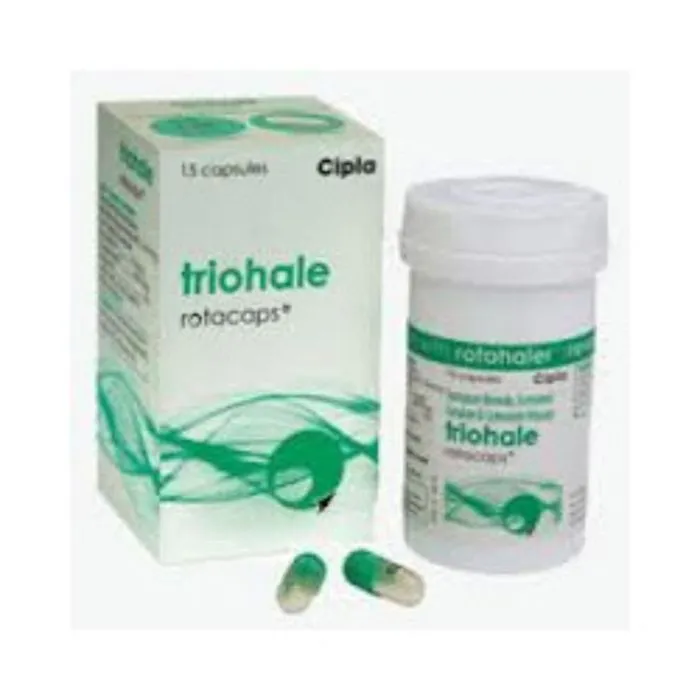
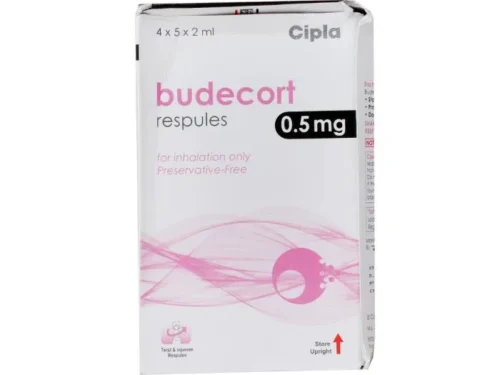
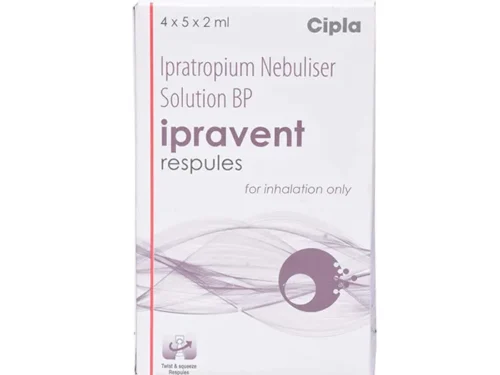
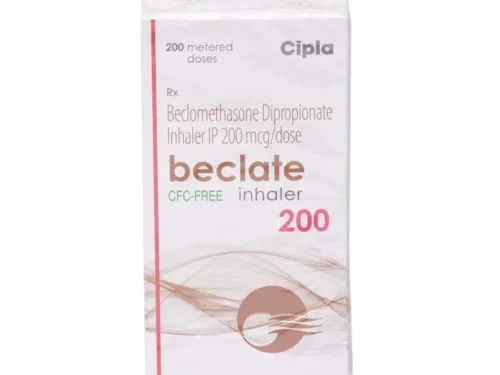
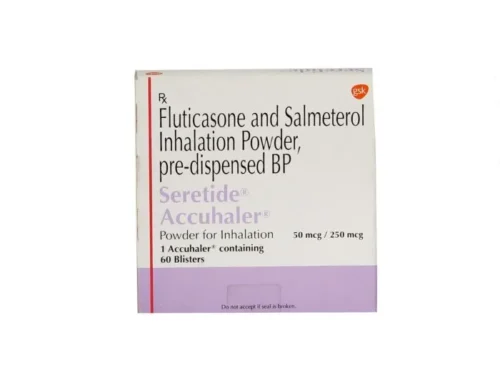
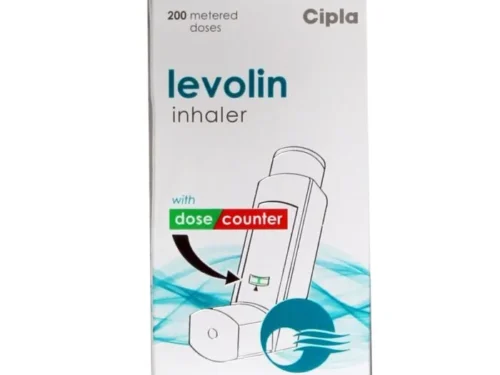
Michael Carter –
My doctor recommended this combo for COPD. It’s keeping me much more active